2019 Seminar

March 20-21, 2019
The Friday Conference Center
1.5 CEU / 15 PDCH offered
Online registration is closed; On-site registration for this seminar will be at the Friday Conference Center in Chapel Hill from 1:00 – 1:30 p.m. on Wednesday, March 20.
Partners: $175 per person; $600 per team of four / Non-Partners: $200 per person; $700 per team of four
The movement of people across borders in search of education, employment and to flee from war, persecution or natural disasters in their home country has triggered an international debate. Global migration has contributed to our increasingly diverse and interconnected world. Cross-border migration has risen steadily over the last three decades, and now accounts for 250 million people and 3% of the global population (Lagarde 2016). With similar trends expected to continue, concerns originating from immigrant-receiving countries are inevitable as they contend with the effects on labor markets as well as on political, social and cultural dynamics. Likewise, countries of origin worry about the potential negative consequences of this migration since it creates a vacuum that must be filled one way or another.
This seminar is designed for K-12 and community college educators to acknowledge global migration and incorporate awareness into their teaching and learning as they prepare the next generation of leaders. Through engaging plenary talks and interactive breakout sessions, this seminar will examine global migration, factors influencing it, its risks and opportunities and the ways in which educators should contemplate this phenomenon as schools and institutions become increasingly diverse.
This program is designed for K-12 and community college instructors of all disciplines, as well as administrators and staff.
Schedule | Speakers | Concurrent Sessions | Exhibitors | Program Material | Lodging & Directions
Download a copy of the program here.
Schedule
| WEDNESDAY, MARCH 20 | |
| 1:00 p.m. | Check-In and Registration |
| 1:30 p.m. | Welcome
Charlé LaMonica, Director, World View, UNC-Chapel Hill
Carol Tresolini, Vice Provost for Academic Affairs, UNC-Chapel Hill
|
| 1:45 p.m. | Plenary I: Urban-Rural Divides over Immigration in Europe
Rahsaan Maxwell, Associate Professor, Department of Political Science, UNC-Chapel Hill
|
| 2:45 p.m. | Break and Exhibits |
| 3:00 p.m. | Plenary II: Understanding the Key Terms in Global Migration
Niklaus Steiner, Director, Center for Global Initiatives, UNC-Chapel Hill
|
| 4:00 p.m. | Plenary III: Ethnic Korean Return Migration
Ji-Yeon O. Jo, Associate Professor, Asian Studies and Global Studies, UNC-Chapel Hill
|
| 5:00 p.m. | Adjourn |
| 5:00-6:30 p.m. | Reception |
| THURSDAY, MARCH 21 | |
| 8:00 a.m. | Continental Breakfast |
| 8:30 a.m. | Plenary IV: Courageous Conversations: The Impact of Global Migration on Schools, Families and Communities
Dana Griffin, Associate Professor, School of Education, UNC-Chapel Hill
|
| 9:40 a.m. | Break and Exhibits |
| 9:55 a.m. | Concurrent Sessions I |
| 10:55 a.m. | Move to Next Session |
| 11:00 a.m. | Concurrent Sessions II |
| 12:00 p.m. | Lunch |
| 1:00 p.m. | Plenary V: Myths about International Migration between Latin American and the United States: Perspectives from Below
Jacqueline Hagan, Kenan Distinguished Professor, Department of Sociology, UNC-Chapel Hill
|
| 2:00 p.m. | Break and Exhibits |
| 2:30 p.m. | Concurrent Sessions III |
| 3:30 p.m. | Transition to Plenary Session |
| 3:35 p.m. | Plenary VI: Antillean Movements in a Globalized World
Michaeline Crichlow, Professor, Departments of African and African American Studies and Sociology, Duke University
|
| 4:35 p.m. | Closing Remarks, Next Steps and Adjourn |
Speakers
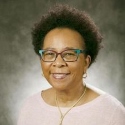





Concurrent Sessions
| GRADES K-12 |
| Meeting the Educational Needs of Immigrant and Refugee Students
Anne Tomalin, ESL Teacher, Chapel Hill High School, Chapel Hill-Carrboro City Schools
Some North Carolina communities have received a large influx of immigrant and resettled refugee families, and school districts are challenged to meet the needs of these children. Some students simply need cultural orientation and English language instruction, while others arrive with academic gaps that need to be addressed while they also learn English. This session will clarify differences between immigrant and refugee students, explore how each group’s experience shapes their educational needs and identify some resources educators can use to support immigrant and refugee students from a variety of circumstances.
|
| GRADES K-12 and COMMUNITY COLLEGE |
| Health and Global Migration
Luiz Andre Pimenta, Assistant Dean of Global Initiatives, UNC-Chapel Hill
Migration is increasingly recognized as a determinant of health. However, the relationship between migration and health remains poorly understood, and action on migration and health remains limited. This session discusses the relationship between migration and health and provides the opportunities and challenges for educators in North Carolina and elsewhere.
|
| Demographic Profile of North Carolina, 1990-Present
Jess Stanford, Demographic Analyst, Carolina Demography, Carolina Population Center, UNC-Chapel Hill
What changes have taken place in North Carolina’s population since 1990? How do they impact North Carolinians differently according to their location in the state? This presentation focuses on population growth from 1990 to present, as well as demographic shifts that have taken place with respect to urbanization, race and ethnicity, education, income and aging.
|
| The East Coast Migrant Farmworker: Ethnography is for Everyone
Scott Temple, Filmmaker and Instructor of English and Humanities, Pitt Community College
Students spend much of their time on the computer. This session explores ways to move students away from the computer and back into the community. We will explore how students use their best resource – their community – as a teacher. Through primary research including observations, participation and interviews, students can create compelling essays through a qualitative approach to understanding their subjects. Students improve their communication, social, problem-solving and technology skills. And, yes, they do get to use their smartphones! We will have an opportunity to look at portions of the documentary At a Stranger’s Table: An In-Depth Introduction to the East Coast Migrant Farmworker in which some of my humanities students participated in the interview process.
|
| Immigrant Food and the Power of Storytelling
Carina Cordero Brossy, Global Education Consultant and Podcaster
Food is essential to human survival, but its functionality is far more complex. Food serves as a window into societal values, perceptions of self, economics, history and more. This session explores the foodways, traditions and culinary history of various world cultures with special emphasis on immigrant populations in North Carolina. We will also examine the impact storytelling has on tying immigrant populations to their food choices and identity long after migration. The session will also offer tools for teaching about global food in the classroom.
|
| Understanding Different Cultures and Facilitating Intercultural Learning
Elizabeth Barnum, Director, International Student and Scholar Services, UNC-Chapel Hill
Students arrive at school with a wide range of first languages and cultural backgrounds. In the course of each day, educators encounter situations with students and their families that require multifaceted considerations of ways cross-cultural interpretations inform “what’s going on here?” In this session we will explore some of these complexities and tips for understanding ways “culture” arrives at school, enters the conversation, informs learning or disrupts the day.
|
| Immigration and North Carolina: Two Strategies to Engage with Immigrant Communities
Isa Godinez, Doctoral Student, Department of Anthropology, UNC-Chapel Hill
This presentation details two approaches to work with and within the immigrant populations of North Carolina. The Building Integrated Communities initiative is a statewide planning program that helps North Carolinian local governments engage with immigrant and refugee communities. The goal of this initiative is to help local governments understand the issues faced by recent arrivals to the community and to ultimately find a way to address these challenges and facilitate integration in these communities. The second approach focuses on how health is affected by the process of migration within a very specific immigrant population in both North Carolina and Mexico. Health status was chosen as the angle of investigation because it has a ripple effect on multiple aspects of both individuals’ lives as well as entire societies.
|
| COMMUNITY COLLEGE |
| Where Do Human Rights Begin?: An Overview of International Human Rights Law, Current Developments and Debates
Deborah Weissman, Reef C. Ivey II Distinguished Professor of Law, School of Law, UNC-Chapel Hill
This session will provide a basic overview of international human rights law, describe current developments including issues pertaining to the enforceability of human rights treaty law and provide an overview of the emerging critiques related to human rights law and practice. The session will also take a closer look at local efforts to enforce international human rights law in North Carolina.
|
| How Rural to Urban and Industrial Migration Helped Boost the Global Economy
Gary Clinton, Faculty Advisor and Client Recruiter, Kenan-Flagler Business School, UNC-Chapel Hill
The dramatic growth in emerging market economies in Asia was significantly impacted by movement of people from rural to urban environments and the movement of global industries from one market to another. This session will examine how migration contributed to a rapid development of formerly poor countries to the benefit of the entire world.
|
Exhibitors
 |
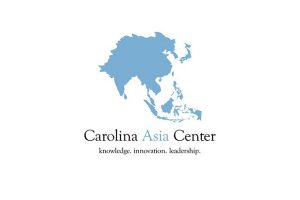 |
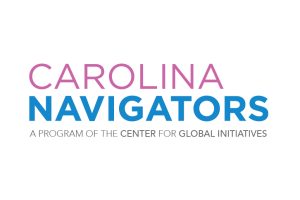 |
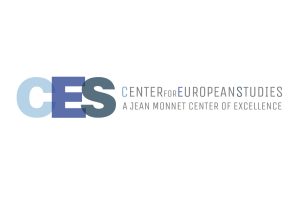 |
 |
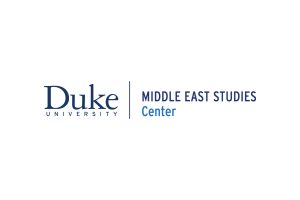 |
 |
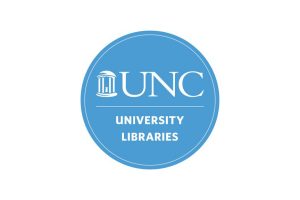 |
 |
Program Material
1.5 Continuing Education Units or 15 Professional Development Contact Hours will be awarded to participants who have successfully completed the seminar. This includes completing the reading assignment and the accompanying study guide, attending all rounds of sessions and turning in the study guide.
Lodging & Directions
